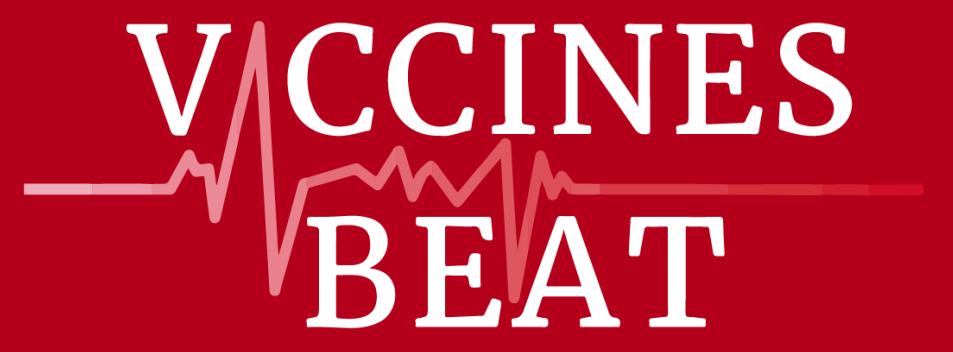Professor Robert Steffen is internationally recognized as the “father of travel medicine.” He not only coined the term but also initiated the world’s first international conference on the subject, laying the foundation for this vital medical specialty.
Professor Emeritus at the University of Zurich, he formerly led the Division of Communicable Diseases at the Epidemiology, Biostatistics and Prevention Institute. He also served as Director of a World Health Organization (WHO) Collaborating Centre for Traveller’s Health. In addition, he holds an adjunct professorship at the University of Texas School of Public Health in Houston.
In the 1970s, Prof. Steffen began systematic research into the morbidity and mortality associated with travel-related illnesses and accidents. Drawing from epidemiological evidence, he developed targeted preventive strategies for individual travelers and championed broader public health initiatives.
Throughout his career, Prof. Steffen has authored more than 400 scientific publications, with a strong emphasis on vaccination. He has served as Editor-in-Chief of both the Journal of Travel Medicine and the International Journal of Public Health, as well as Section Editor for Clinical Infectious Diseases. During his 27-year tenure at the Zurich University Center for Travel Medicine, he oversaw more than one million vaccinations, with the clinic providing nearly 20,000 consultations annually.
In 1988, Prof. Steffen organized the first international conference on travel medicine in Zurich, Switzerland. Three years later, in 1991, he co-founded the International Society of Travel Medicine in Atlanta alongside Herbert ‘Bert’ DuPont, who served as its first president. Prof. Steffen also led the Swiss Federal Commission for Influenza and served as Vice-President of both the Federal Commission on Vaccination and the Swiss Bioterrorism Committee. Since retiring from the University of Zurich, his research has focused on adult immunization. He continues to contribute to the field as an advisor to the Adult Immunization Board (AIB).
The WHO has frequently sought his expertise, inviting him to serve on numerous advisory boards. His contributions have included work on malaria, vaccine-preventable diseases, biological and chemical threats, aircraft and ship disinsection, and airport epidemiological preparedness. Notably, he chaired the International Health Regulations (IHR) Emergency Committee on Ebola multiple times until 2020.
Much of the development of travel medicine as an interdisciplinary field can be traced back to Prof. Steffen’s pioneering efforts. His research, often sparked by seemingly minor issues, has paved the way for significant advancements and practical travel health recommendations. Today, his legacy underscores the critical importance of preventive measures in global health.
How it all started and evolved
Nearly 50 years ago, Professor Robert Steffen was at the helm of the International Federation of Medical Student Associations (IFMSA), which at the time represented around 200,000 students across numerous countries. As part of his duties, he frequently traveled to visit member nations. However, there was no structured travel health guidance available then. In preparation for these visits, he turned to textbooks on tropical medicine—only to find widespread contradictions.
An expert in weaving epidemiological studies that produce guidance for travelers, Prof. Steffen continues to emphasize the importance of vigilance—for instance in the face of evolving diseases like malaria and dengue.
He highlights malaria as a growing concern. According to annual malaria reports, the disease is not only increasing in absolute numbers—partly due to population growth, particularly in tropical Africa—but also in incidence rates. One contributing factor, he notes, is that malaria prevention was significantly neglected during the COVID-19 pandemic.
On dengue, Prof. Steffen points to an unprecedented surge in 2024. In the Americas alone, nearly 15 million cases were recorded—a threefold increase compared to 2023.
According to the WHO, dengue is now endemic in over 100 countries across the WHO regions of Africa, the Americas, the Eastern Mediterranean, South-East Asia, and the Western Pacific. The most seriously affected areas are the Americas, South-East Asia, and the Western Pacific—with Asia alone accounting for about 70% of the global disease burden. Alarmingly, dengue is also spreading into new territories, including Europe, the Eastern Mediterranean, and parts of South America and the U.S.
Predictability and the crystal ball
The global movement of travelers continues to pose a serious challenge in containing potential epidemics. Diseases that originate in one region can rapidly impact others—often far beyond their point of origin. For Prof. Steffen, this interconnectedness highlights a sobering reality: the predictability of outbreaks is extremely limited.
“We always have to be prepared for new outbreaks,” he emphasizes.
In addition to well-known arboviruses such as chikungunya, dengue, and Zika, a new player has emerged: Oropouche virus. Initially identified in Trinidad, Oropouche has recently caused a significant outbreak in several Latin American countries—many of which are popular travel destinations for European and North American tourists.
These unexpected developments serve as a stark reminder of the challenges public health experts face in forecasting disease trends.
“And so, predictability really is extremely limited and I prefer not to predict too much because I might be proven wrong,” he reflects.
Absence of evidence is not equal to evidence of absence: Surveillance
In epidemiology, surveillance is a cornerstone of disease monitoring and control. It enables early detection of outbreaks, helps identify at-risk populations, and supports the evaluation of public health interventions.
For international travelers, surveillance becomes even more critical. Recognizing this, Prof. Steffen and his colleagues helped establish GeoSentinel, a global research and surveillance network under the International Society of Travel Medicine and the Centers for Disease Control. The system comprises approximately 70 clinics worldwide, all focused on tracking infectious diseases in travelers.
GeoSentinel has become a valuable early warning system. It’s a powerful reminder that the absence of evidence does not mean evidence of absence—especially in global health.
A successful dengue vaccine
An ideal vaccine, according to Prof. Steffen, should meet several critical benchmarks: high efficacy, good tolerability, affordability, and broad availability. In the case of dengue, two vaccines are currently available globally. The first vaccine, however, because of serious adverse reactions will no longer be produced.
The second vaccine, currently marketed in Europe, has shown a strong efficacy against serotypes 1 and 2. However, it offers no protection against serotype 3 in seronegative individuals (those who have never had dengue—most travelers fall into this category), and its efficacy against serotype 4 remains inconclusive due to the low number of trial participants infected with that strain.
A promising finding is that a single dose of this vaccine provides approximately 80% protection—comparable to the full two-dose regimen.
“That single dose, administered before departure, typically offers substantial protection for most travelers—who usually stay no longer than one or two months in endemic regions,” he says. “Eighty percent protection after just one dose? That’s already pretty good.”
The second dose, he adds, extends protection over the longer term and can be administered after travel or even up to a year later, especially for those planning a return to an endemic area.
“I often say, be happy about having half a glass full, and don’t complain that it’s not completely full. I see this vaccine as a benefit,” he reflects.
Prof. Steffen also challenges the belief, held by some expert groups, that dengue is a mild illness.
“Over 20% of the patients need hospitalization, be that in the country where the infection is endemic, or be it upon return, or possibly both,” he argues. “This is not mild because, additionally to ruining a trip, it has a potential substantial impact on their health and, even primary infections of dengue have killed some travelers.”
Given the severity of the disease, he calls for a reassessment of Europe’s current dengue vaccination guidelines, which he believes are too restrictive for travelers. At present, the vaccine is often limited to seropositive individuals (those previously infected).
However, Prof. Steffen contends that seronegative individuals should also be eligible. He emphasizes that, unlike the first vaccine—associated with Antibody-Dependent Enhancement (ADE)—the current vaccine, with five years of use, shows no such concerns. He points to growing evidence that it does not cause the life-threatening side effects seen with its predecessor.
“There’s no warning sign that the new vaccine triggers ADE,” he explains. “NS1 is transferred and, in my opinion, that helps prevent it.”
Despite these positive developments, Prof. Steffen expresses disappointment that the vaccine cannot be approved in the United States. The regulatory agency, he explains, requested additional trial data only after the completion of phase-three studies—data that can no longer be collected.
“This decision effectively blocks access to the vaccine for American travelers, instead of reducing their risk of infection,” he concludes.
Wolbachia infected mosquitoes: An Elegant Approach to Vector Control
One of the most innovative strategies in the fight against mosquito-borne diseases involves the use of genetically modified mosquitoes infected with Wolbachia—a naturally occurring bacterium that blocks viruses like dengue, chikungunya, and Zika from replicating in the bodies of Aedes aegypti mosquitoes. As a result, these mosquitoes become significantly less capable of transmitting infections to humans.
Prof. Steffen has closely reviewed the available data and finds the results highly encouraging. Such trials have been conducted in as much as a dozen countries and the incidence rate of dengue showed to be reduced by around 80% in some cases, which is extremely impressive. He is an enthusiastic proponent of expanding this approach.
In addition to vector control, Prof. Steffen emphasizes the importance of sustained medical and financial support—both for deploying more Wolbachia-infected mosquitoes and for expanding access to dengue vaccines. He also believes international policy should evolve to better reflect the lack of equity in disease prevention.
At the policy level, he calls for greater international harmonization of vaccination recommendations for travelers. He notes key philosophical differences between regions:
“In the United States, there’s a tendency to reduce the risk to zero. Europe, on the other hand, is more willing to accept limited risk,” he explains.
Prof. Steffen’s pragmatic approach underscores a fundamental truth in travel medicine: while total safety may be an illusion, smart, evidence-based strategies can offer real and meaningful protection.







